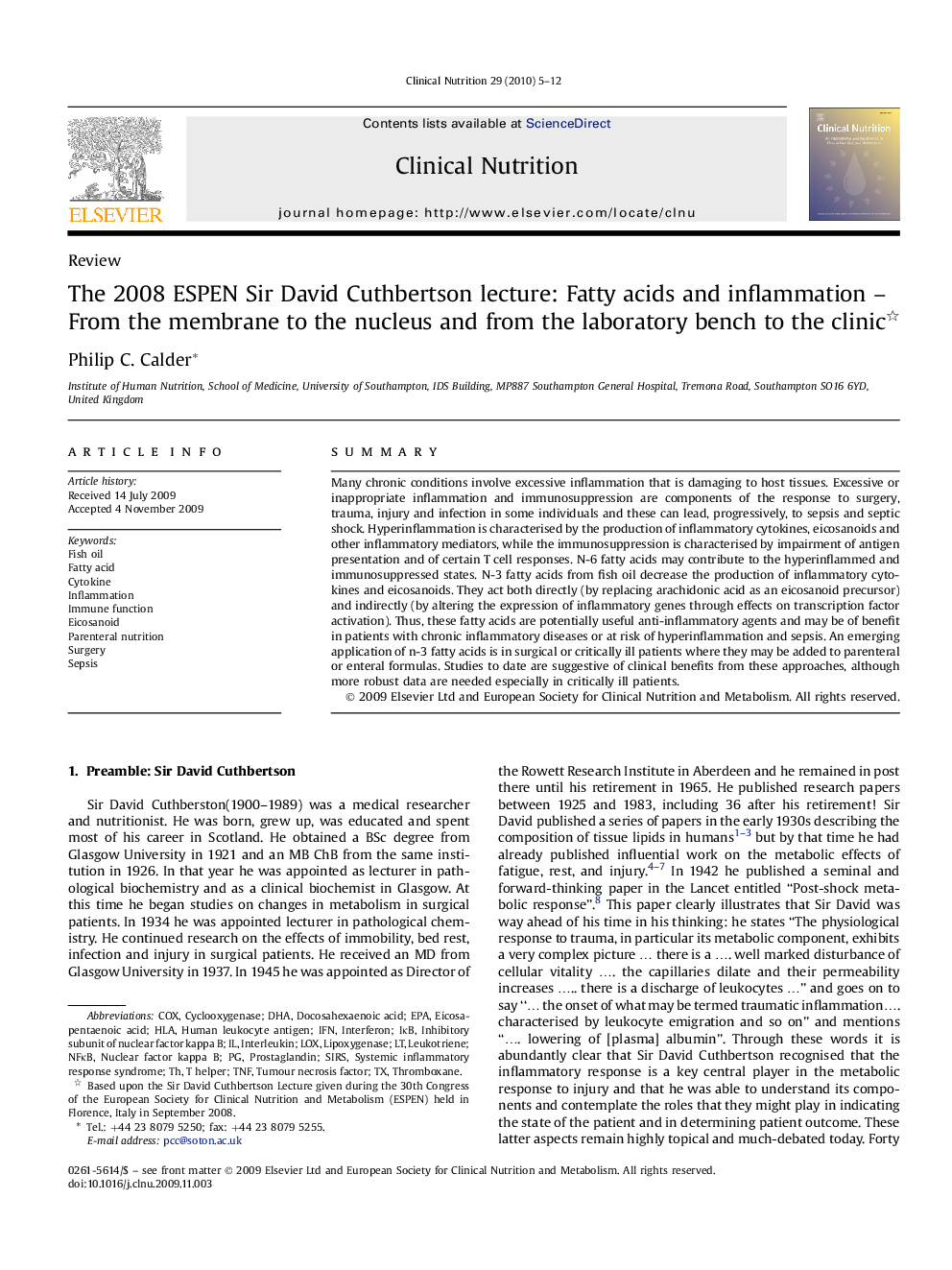| Article ID | Journal | Published Year | Pages | File Type |
|---|---|---|---|---|
| 2687272 | Clinical Nutrition | 2010 | 8 Pages |
Abstract
Many chronic conditions involve excessive inflammation that is damaging to host tissues. Excessive or inappropriate inflammation and immunosuppression are components of the response to surgery, trauma, injury and infection in some individuals and these can lead, progressively, to sepsis and septic shock. Hyperinflammation is characterised by the production of inflammatory cytokines, eicosanoids and other inflammatory mediators, while the immunosuppression is characterised by impairment of antigen presentation and of certain T cell responses. N-6 fatty acids may contribute to the hyperinflammed and immunosuppressed states. N-3 fatty acids from fish oil decrease the production of inflammatory cytokines and eicosanoids. They act both directly (by replacing arachidonic acid as an eicosanoid precursor) and indirectly (by altering the expression of inflammatory genes through effects on transcription factor activation). Thus, these fatty acids are potentially useful anti-inflammatory agents and may be of benefit in patients with chronic inflammatory diseases or at risk of hyperinflammation and sepsis. An emerging application of n-3 fatty acids is in surgical or critically ill patients where they may be added to parenteral or enteral formulas. Studies to date are suggestive of clinical benefits from these approaches, although more robust data are needed especially in critically ill patients.
Keywords
T helperEicosanoidSIRSIκBTNFCOXEPANFκBHuman leukocyte antigenHLAcyclooxygenaseEicosapentaenoic aciddocosahexaenoic acidFatty acidinflammationLOXinterferonIFNinterleukinthromboxaneParenteral nutritionDHAFish oilSystemic inflammatory response syndromeSepsisCytokinetumour necrosis factorSurgeryImmune functionnuclear factor kappa BLeukotrienelipoxygenaseprostaglandin
Related Topics
Health Sciences
Medicine and Dentistry
Critical Care and Intensive Care Medicine
Authors
Philip C. Calder,
